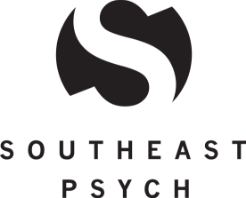Cognitive Behavioral Therapy (CBT) is a widely used and highly effective approach for addressing a variety of mental health conditions. Whether you’re struggling with anxiety, depression, post-traumatic stress disorder, eating disorders, or obsessive-compulsive disorder, for example, CBT offers practical tools to help you understand and change unhelpful thought and behavior patterns.
Let’s take a closer look at what CBT is, how it works, and how you can benefit from this approach to therapy to improve your daily life and emotional well-being.
What Is Cognitive Behavioral Therapy?
Cognitive Behavioral Therapy (CBT) is a structured, goal-oriented form of psychotherapy that focuses on the connection between your thoughts, emotions, and behaviors. By identifying and challenging negative thoughts and behavior patterns, CBT can help you develop healthier ways of thinking and responding to life’s challenges.
This approach to therapy is typically short-term, with many people completing treatment in as few as 6 to 20 sessions, depending on their specific needs and goals. Therapy sessions are designed to empower you with tools and techniques that you can continue to use long after therapy ends.
How CBT Works
CBT is based on the idea that our thoughts and feelings influence our behaviors. This, in turn, shapes our experiences in daily life. For example, if you have a negative thought like, “I’ll never succeed,” this can lead to feelings of frustration or hopelessness and behaviors like procrastination or giving up altogether.
A CBT therapist works with you to break this cycle by:
- Identifying Thought Patterns: Recognizing unhelpful thoughts and beliefs that may be contributing to the difficulties you’re experiencing.
- Challenging Negative Thoughts: Replacing negative thought patterns with balanced and constructive alternatives.
- Changing Behavior Patterns: Developing new habits and coping strategies that promote healthier outcomes.
Through this process, you learn to manage your thoughts and emotions more effectively, improving both your mental and physical well-being.
Who Can Benefit from CBT?
CBT is a versatile therapy that can benefit individuals facing a wide range of challenges, including but not limited to:
- Anxiety Disorders: Learning to manage anxious thoughts and feelings in stressful situations.
- Depression: Breaking free from patterns of hopelessness and regaining motivation.
- Post-Traumatic Stress Disorder (PTSD): Processing traumatic experiences and reducing their impact on daily life.
- Obsessive-Compulsive Disorder (OCD): Developing tools to manage compulsions and intrusive thoughts.
- Eating Disorders: Addressing unhealthy thought patterns related to body image and eating habits.
A diagnosable mental health condition isn’t required for a person to use the concepts and skills which come from CBT in their daily life. CBT can also help with issues such as managing stress, improving relationships, and enhancing overall emotional resilience.
What to Expect During Therapy Sessions
CBT therapy sessions are collaborative, meaning you and your therapist work together as a team. During your sessions, your therapist will help you:
- Set Goals: Identify specific areas of your life you want to improve, such as reducing anxiety or building confidence.
- Explore Thoughts and Feelings: Examine how your thoughts, emotions, and behaviors interact and influence each other.
- Develop Coping Strategies: Learn practical tools like relaxation techniques, problem-solving skills, and changing negative thought patterns to handle challenges more effectively.
Each session builds on the previous one, helping you gain deeper insights into your thought patterns and empowering you to make lasting changes.
How Long Does CBT Take?
The number of sessions required for CBT varies depending on your unique situation and goals. Some individuals benefit from CBT in as few as 6 to 10 sessions, while others may require up to 20 sessions or more for more complex issues.
Your therapist will work with you to develop a personalized treatment plan and timeline, ensuring that your therapy is tailored to your specific needs.
The Benefits of CBT
The skills you learn in CBT extend far beyond the therapy room, equipping you to navigate life’s challenges with greater confidence and resilience. Benefits of CBT include:
- Improved emotion regulation
- Enhanced problem-solving abilities
- Reduced symptoms of anxiety, depression, and other mental health conditions
- Better relationships and communication skills
By addressing the root causes of your struggles and providing actionable strategies, CBT empowers you to take control of your thoughts, emotions, and behaviors for a healthier, more fulfilling life.
If you’re ready to take the first step toward positive change, Southeast Psych is here to support you. Our compassionate and experienced therapists can help you navigate challenges, set meaningful goals, and develop tools to improve your daily life.
Contact us today to schedule a consultation. Let us guide you on your journey to better mental health, one session at a time.
